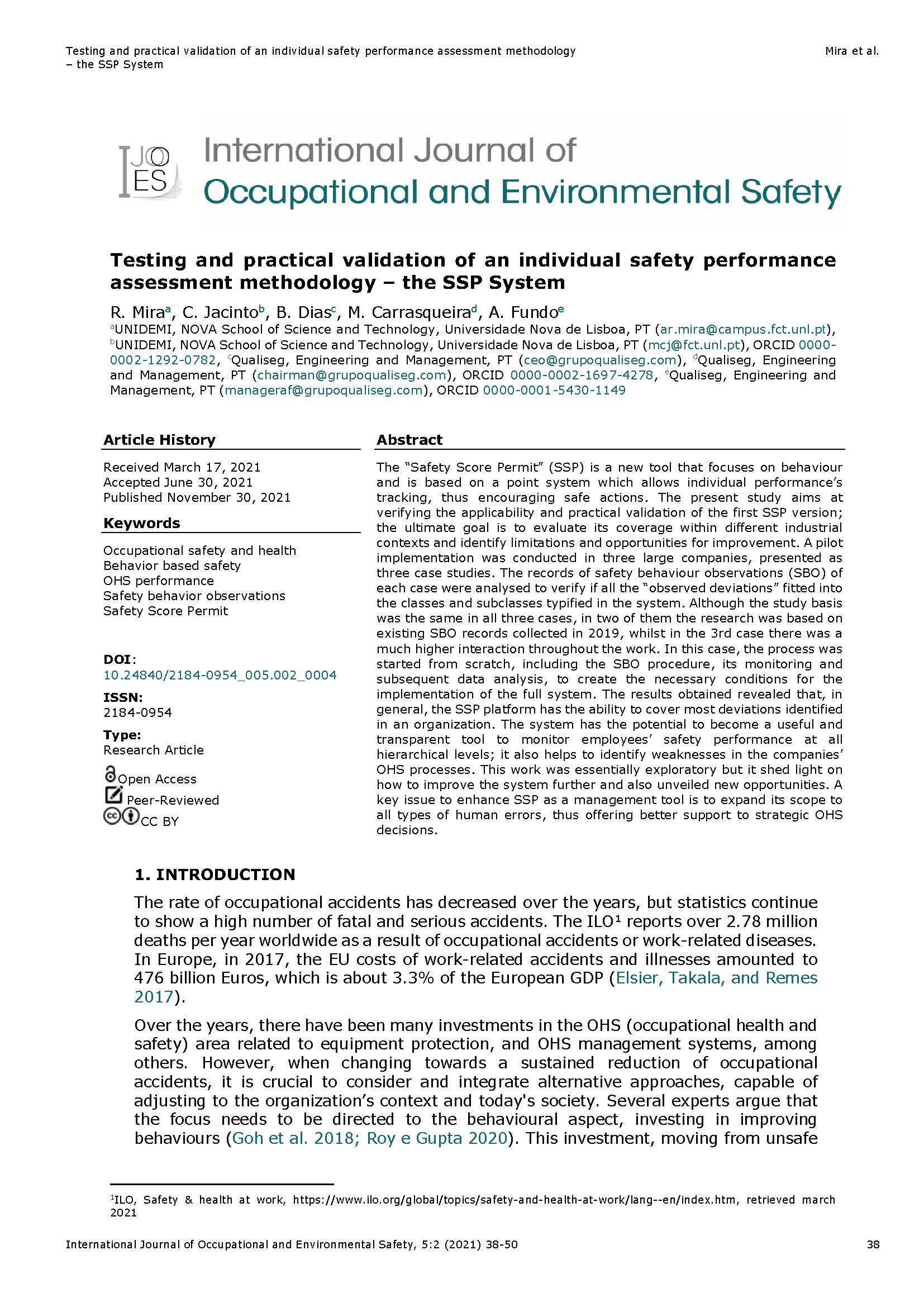Testing and practical validation of an individual safety performance assessment methodology – the SSP System (Article)
Main Article Content
Abstract
The “Safety Score Permit” (SSP) is a new tool that focuses on behaviour and is based on a point system which allows individual performance’s tracking, thus encouraging safe actions. The present study aims at verifying the applicability and practical validation of the first SSP version; the ultimate goal is to evaluate its coverage within different industrial contexts and identify limitations and opportunities for improvement. A pilot implementation was conducted in three large companies, presented as three case studies. The records of safety behaviour observations (SBO) of each case were analysed to verify if all the “observed deviations” fitted into the classes and subclasses typified in the system. Although the study basis was the same in all three cases, in two of them the research was based on existing SBO records collected in 2019, whilst in the 3rd case there was a much higher interaction throughout the work. In this case, the process was started from scratch, including the SBO procedure, its monitoring and subsequent data analysis, to create the necessary conditions for the implementation of the full system. The results obtained revealed that, in general, the SSP platform has the ability to cover most deviations identified in an organization. The system has the potential to become a useful and transparent tool to monitor employees’ safety performance at all hierarchical levels; it also helps to identify weaknesses in the companies’ OHS processes. This work was essentially exploratory but it shed light on how to improve the system further and also unveiled new opportunities. A key issue to enhance SSP as a management tool is to expand its scope to all types of human errors, thus offering better support to strategic OHS decisions.
Article Details

This work is licensed under a Creative Commons Attribution 4.0 International License.

